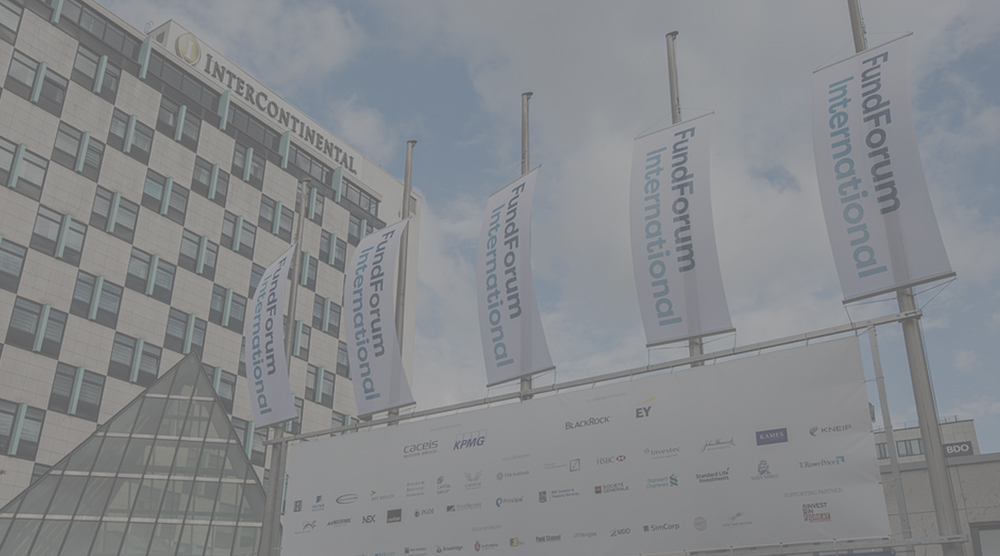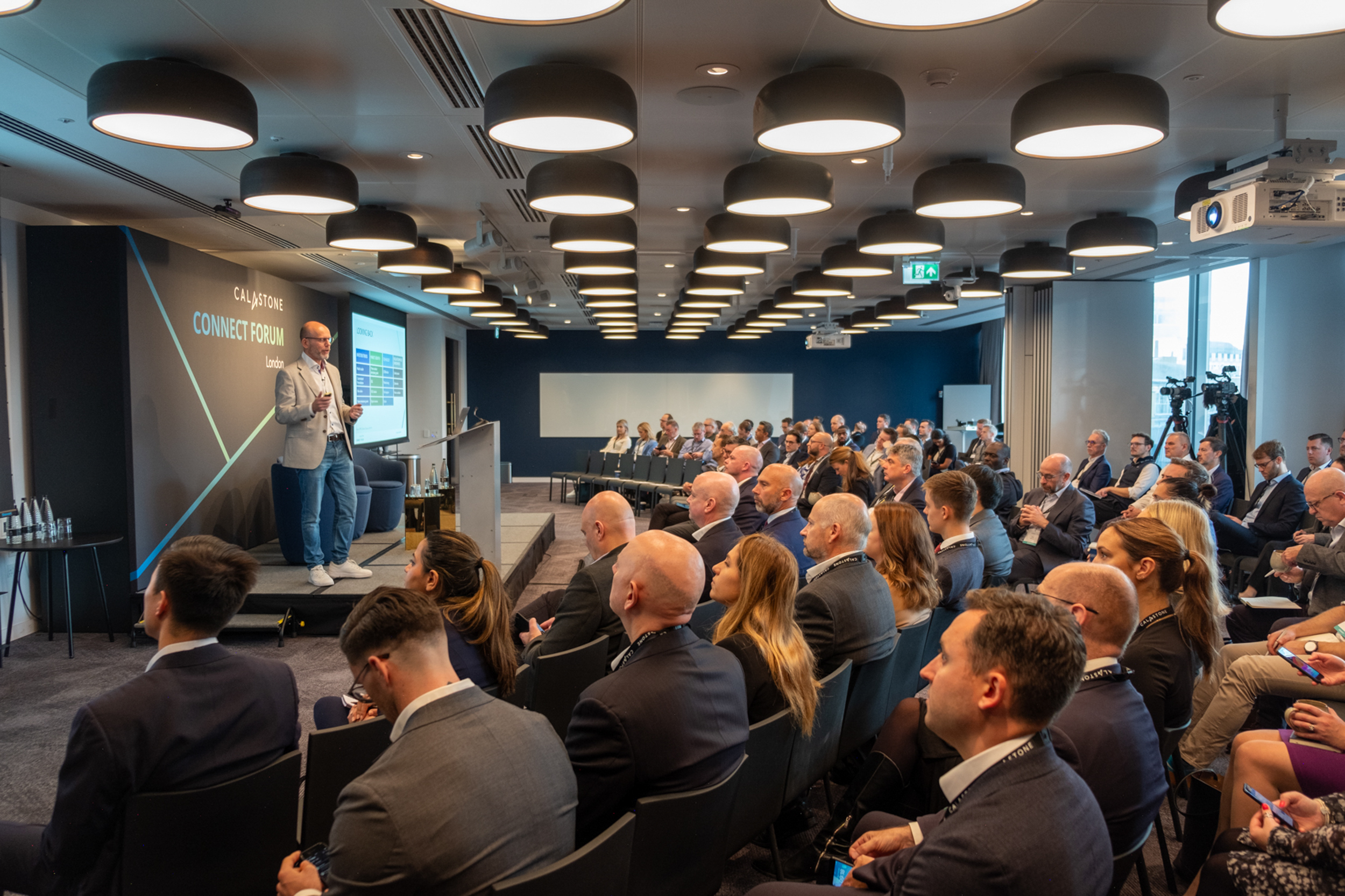Fund Forum International was held in Berlin between June 12 and 14. Jon Willis, Chief Commercial Officer at Calastone, gives his take on some of the big issues that were raised at the conference.
The funds industry will need to evolve in the next 18 months, and this appeared to be a clear theme in Berlin. The last two years have been dominated by fund distributors talking about changing the way they operate amid concerns of disintermediation. This was also a theme at our Calastone Connect Forum in London that we hosted in May, and is covered our recent whitepaper ‘The digital fund distribution revolution: opportunity through change’.
Participants at Fund Forum have recognised now is the time to stop just discussing reforms, but instead executing wholehearted changes to their business models.
Regulation and distribution
Regulations often have unintended consequences and the UK’s Retail Distribution Review (RDR) and the Markets in Financial Instruments Directive II (MiFID II) are no exemption. Both sets of rules explicitly ban inducements, which will force consumers to start paying to receive investment advice.
I recognise that prohibiting commissions to ensure advisors give nothing but impartial investment advice is a step in the right direction, yet many end clients will not pay for a service that has historically been free of charge.
In fact, experts – speaking at the panel discussion titled “Resetting Europe’s Business Model around the End Customer’s Outcome” – acknowledged that RDR had prompted a noticeable decline in investors seeking advice. RDR was of course the beginning, and MiFID II is likely to create a pan-EU advice gap for retail investors.
The macroeconomic environment makes it more important than ever for ordinary investors to buy fund products to generate accruals in long-term wealth yet they are being deprived of this because of the current advice gap. Putting money into a bank deposit account will not lead to meaningful wealth accumulation as interest rates are so low. A cost-effective advisory solution therefore needs to be identified to ensure investors can enjoy wealth preservation and growth.
Not all unintended consequences of regulation are bad though. Product governance provisions contained within the Directive require manufacturers to know who their target market is, a point articulated in a session titled – “Harnessing the power of Big Data”. The responsibility of providing this client information to the manufacturer lies with the distributor, who needs to supply the data.
Some see this as an operational cost and commercial disadvantage, but I would disagree as manufacturers will now be able to design and sell customised products to individuals based on this increased flow and abundance of client information. This was a point raised by Edward Glyn, Global Head of Relationship Management at Calastone at our Connect Forum in May 2017 in London.
The reality is complex because the funds industry – broadly speaking – does not know how to use the data they have on clients to maximum effect. An audience poll at our Connect Forum in London revealed just 6.5% of attendees possessed “great data and knew how to use it”, while the majority admitted they did not utilise the data they held.
This inactivity around big data is down to several factors, which were picked up in a recent Calastone survey. Fifty-two per-cent felt managers did not have access to the necessary data, while 43% blamed a lack of internal expertise and 41% an absence of the correct technological infrastructure. For data to be used purposefully, the industry should consider fixing these shortfalls.
Digitalisation of the distribution chain is finally underway
I was left in no doubt at Fund Forum that the industry is finally recognising that it needs to make significant changes to how products are sold and investors are engaged with. However, there is still significant work to be done.
But what new distribution channels were discussed at Fund Forum, and how significant will their role be going forward? The jury is broadly out about what robo-advisors will bring to the funds industry.
Optimists believe a robo-distribution/advisor channel, which can be linked to a smartphone or tablet app, is an ideal tool to nudge millennials into funds. Millennials have been resistant to fund investing, mainly due to their apparent lack of financial education and understanding, but also their low net worth which has been exacerbated by stagnant wage growth.
Robo-advisers are cheap to operate making them accessible to millennials but also investors unable to afford advice under MiFID II. It was interesting to hear that asset managers are quietly bullish that millennial hesitation about investing will probably subside once they move onto the property ladder, have families or are forced to fund parental care.
Robo-advisors, however, generally provide clients with exposures to baskets of exchange traded funds (ETFs) and index tracking products. We have not had an equity market correction in almost 10 years, and the growth in tracker funds and ETFs is worrying some people, who believe a lot of investors could see their capital wiped out in the event of a crash or serious stock market volatility.
Given that the Calastone study found 57% of respondents believed such passive products would overtake active managers as the core investment product for retail clients, this is a risk that needs to be considered by the market.
There is also a lack of consensus about whether technology corporations such as Amazon or Google will disrupt the traditional distributors or asset managers. I chaired a session at the inaugural Fund Forum Ops and one of the panellists was unconvinced that such disruption would happen because the compliance and capital costs would be too significant for these technology companies.
Others take a contrasting view, and refer to the highly successful launch of the Yu’e Bao mutual fund controlled by Alibaba in China, which is now looking after more than $165 billion in assets belonging to over 260 million customers.
This capital is not coming from the mass affluent, but those living in rural areas on low incomes, who fit the millennial demographic. Judging by events in China, I would strongly caution the funds’ industry against overlooking this risk.
Blockchain takes a giant step forward
For several years, Blockchain was very much a theoretical premise. I believe Blockchain has a number of practical uses whereby it will deliver much needed automation, but organisations must be selective in the test cases to which they apply it.
Blockchain will have a major role in digitising the distribution ecosystem. At Fund Forum, we announced that we had completed the first phase of a Blockchain proof of concept, testing the feasibility of using distributed ledger technology to develop a common global marketplace for the trading and settlement of mutual funds.
Fund transactions globally have relied on legacy technologies for too long now, making the entire subscription and redemption process more complicated and time-consuming than it needs to be.
This automation deficiency adds significant frictional costs to fund buyers and sellers in a subdued return environment. A distributed market infrastructure for the trading and settlement of mutual funds would be a huge step forward in an industry that has consistently struggled to upgrade its back-end technology.
The funds’ industry will have an excellent opportunity to realise massive operational benefits, by streamlining its distribution processes in a Blockchain environment.
Looking forward to 2018
Our industry is not renowned for moving quickly when confronted with change, but I believe 2017/18 will buck this trend. A combination of threats to active management, such as inexpensive and better performing passive funds, disruptive technology, fee compression and rising operational costs, are all going to make their mark felt.
If the funds industry is not proactive and positive in its response, then it could face significant disruption. Many industries have been forced to deal with sudden change or disruption over the centuries. The ones that are still with us are those that rose to the challenge. Such industries are typified by having forward-thinking individuals driving strategy, and making major decisions. In the 21st century, the organisations that have digital intelligence and thought leadership will be the likely winners.
Many investment fund manager boards do not have digital expertise to call upon, and this is constraining their ability to recognise how consumers are changing. Boards without digital experience may deter enterprise-wide innovation and this is an issue Calastone raised in its white paper – “The accelerating power of technology: lessons for the future of fund distribution”.
An engaged approach to change, driven by individuals unafraid of confronting technological challenges and disruption directly, will help enable the funds industry to evolve.





















